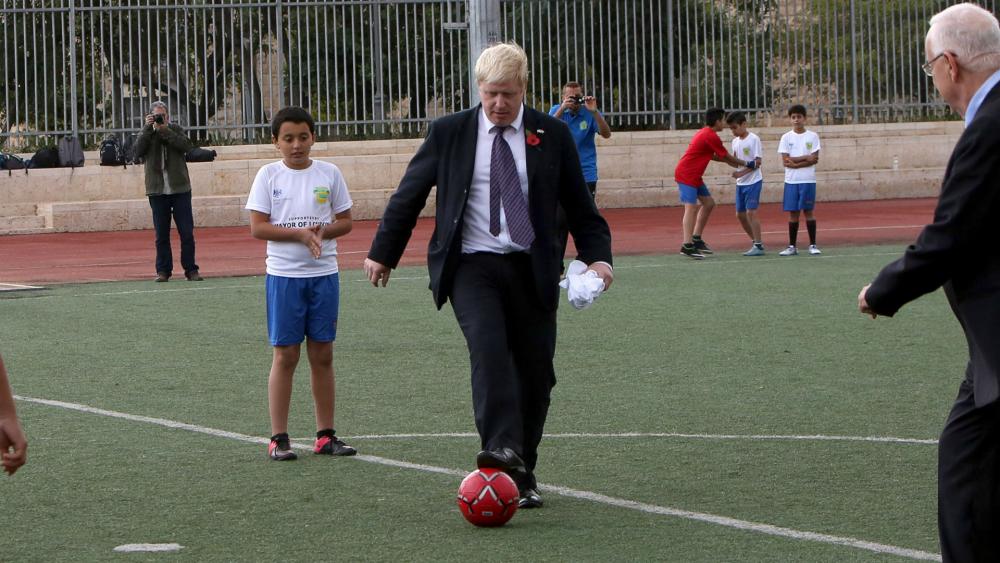What does Brexit mean for European football?
Britain's exit from the European Union - Brexit - could well change the landscape of football on the continent.

The best features, fun and footballing quizzes, straight to your inbox every week.
You are now subscribed
Your newsletter sign-up was successful
Want to add more newsletters?

Five times a week
FourFourTwo Daily
Fantastic football content straight to your inbox! From the latest transfer news, quizzes, videos, features and interviews with the biggest names in the game, plus lots more.

Once a week
...And it’s LIVE!
Sign up to our FREE live football newsletter, tracking all of the biggest games available to watch on the device of your choice. Never miss a kick-off!
Join the club
Get full access to premium articles, exclusive features and a growing list of member rewards.
The landscape of European football could be set for widespread changes after the United Kingdom voted to leave the European Union through a referendum.
June 23's vote marks a turning point in modern history, with the UK set to leave the multinational union it joined back in 1973.
The ramifications on football, both in the UK and across the rest of the continent, could be huge.
UK WORK PERMITS
Britain's decision to remove itself from the continental bloc means work permits will be required for European footballers if the freedom to move and work between member nations supplied under the EU is no longer applicable after exit negotiations.
The rules that previously only applied to players from countries outside of the EU could be imposed upon all foreign players. A player from a top-10 nation in the FIFA rankings is required to have played in 30 per cent of games in the two years prior to a work permit application, a percentage that increases the further down the player's home nation sits.
While there are means for clubs to request hearings based on extenuating circumstances – such as a player who has been injured or is a young talent yet to make a full international breakthrough – this change would make signing foreign players more difficult.
The best features, fun and footballing quizzes, straight to your inbox every week.
N'Golo Kante, Anthony Martial, Romelu Lukaku and Dimitri Payet are examples of high-profile stars who would have been ineligible under the current rules when they first moved to England.
"There are four players that we can reflect on and the impact they had on their clubs last year, who may not have been able to come in," investment banker Keith Harris told Sky Sports.
"Kante, who had a huge impact at Leicester, Martial at Manchester United, Lukaku at Everton and Payet at West Ham.
"I wonder how attractive the Premier League would have been and how well those clubs would have done without those specific players, and that's the kind of thing we are now speculating about."
It is a problem that Arsenal coach Arsene Wenger mentioned last year when he discussed trying to sign Angel Di Maria as a 17-year-old.
"We identified Di Maria when he was 17. We wanted him to come here, but he goes to Portugal, from Portugal he goes to Spain," said Wenger.
"Why? Because he could not get a work permit here. That means you can only get him to England once he is worth a huge amount of money."
However, clubs such as Chelsea have used feeder clubs to initially send young non-EU players on loan to foreign clubs and get around the rules.
British players plying their trade abroad, such as Gareth Bale at Real Madrid, will add to their club's non-European player quota, potentially forcing clubs into undesired sales.
However, there is nothing stopping the rules in Britain and Europe being amended in the future.
TRANSFER FEES
News of Britain's exit from the EU has resulted in the value of the pound plummeting – early on Friday the currency had slipped to its lowest level since 1985.
This poses a problem for Premier League clubs. Suddenly, their players have devalued.
Everton striker Lukaku has been linked with a move abroad this summer, and the weaker position of the pound means, for example, a £40million transfer fee is worth less than it was prior to the referendum vote.
"Clubs will certainly need to consider their transfer targets and policies once the position becomes clearer over the coming years," lawyer Dan Lowen told the Daily Mail.
By the same token it makes signing players from abroad a more expensive proposition for clubs in Britain, with meeting a euro-based asking price requiring more pounds.
However, for European clubs it offers a huge boost, with talent in England's top-flight now more affordable.
The value of the pound could still return in the long-term, but these implications are likely to be prevalent for the near future.
YOUNG PLAYERS
Under current FIFA regulations the "transfers of minors between the age of 16 and 18 within the EU or EEA [European Economic Area]" is permitted.
However, with Britain moving out of the EEA, this is set to mean teams will have to wait until players reach their 18th birthday in order to sign them.
As an example, Arsenal would have been forced to wait a further two years before signing the likes of Cesc Fabregas and Hector Bellerin.
If these players had made their first-team appearances in the intervening period, their value would have likely shot up and made them become more difficult to purchase.
PREMIER LEAGUE VIEW
The Premier League is unwilling to speculate on how the future of the competition will play out following the result, but is confident its global appeal will not be damaged.
"The Premier League is a hugely successful sporting competition that has strong domestic and global appeal," their statement read
"This will continue to be the case regardless of the referendum result.
"Given the uncertain nature of what the political and regulatory landscape might be following the 'Leave' vote, there is little point second guessing the implications until there is greater clarity.
"Clearly, we will continue to work with Government and other bodies whatever the outcome of any process."
Supporters of Britain's exit from the EU argue that a reduction in foreign players being granted the right to play in the Premier League could see more opportunities provided to homegrown talent.
 Join The Club
Join The Club










